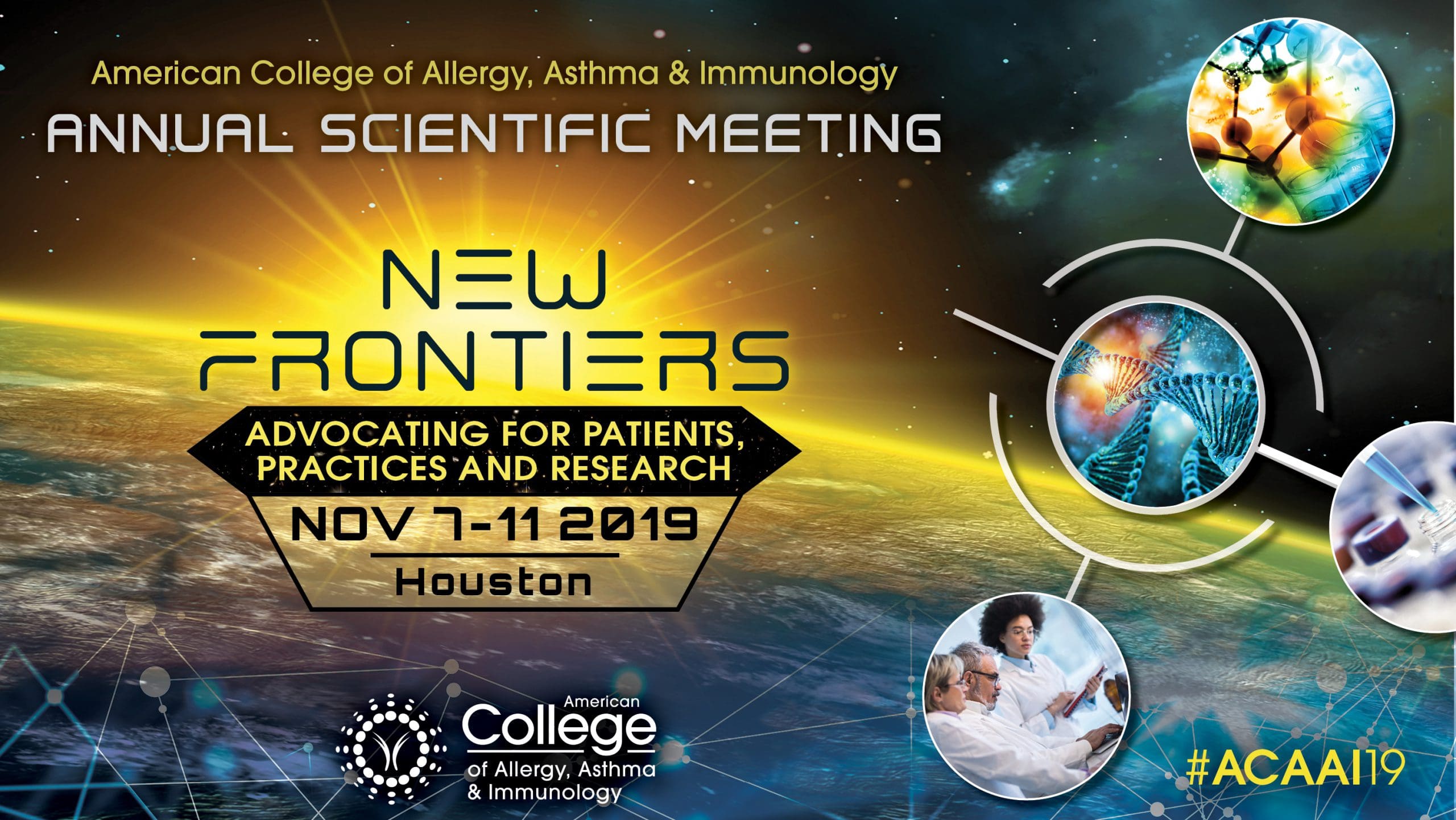November 8, 2019
HOUSTON (November 8, 2019) – At some point you may have had a reaction to penicillin and were told you were allergic. And there’s a good chance it has stayed in your chart throughout your childhood and into adulthood. But 9 of 10 Americans who think they have a penicillin allergy have either outgrown it or never had it in the first place. That said, it’s important to get tested by an allergist to know if you have a true penicillin allergy so you know whether to avoid the drug.
Three new studies being presented at the American College of Allergy, Asthma and Immunology (ACAAI) Annual Scientific Meeting in Houston present new information on penicillin allergy.
Women are four times more likely than men to have a penicillin allergy
The study was a review of more than 30,000 penicillin allergy tests conducted between 2001-2017. There were two criteria used to examine the tests – one with a 3×3 mm wheal (raised bump) and one using a 5×5 mm wheal. Using the criteria of 3×3 mm wheal, there was a significant difference between men and women in terms of percentage of those with penicillin allergy.
“Our study suggests women have a higher rate of penicillin allergy then men,” says allergist Miguel Park, MD, study co-author and ACAAI member. “Of the 329 people with a positive skin test, 298 (91 percent) were female and 31 (9 percent) were male. Further studies will need to be done to verify these results but getting tested for penicillin allergy is clearly worthwhile for those who have the diagnosis in their medical chart.”
Presentation Title: Female Sex as a Risk Factor of IgE Mediated Penicillin Drug Allergy
Presenter: Miguel Park, MD
Direct oral challenge of penicillin is safe and effective for low-risk children
The first step for most children being tested for penicillin allergy is a skin test. If that test is negative, the next step is generally an oral challenge, meaning a dose of liquid penicillin. According to a new study, going straight to an oral challenge with amoxicillin, a type of penicillin, is safe and effective to rule out penicillin allergy in low-risk children.
“During the study period, 54 pediatric patients labeled with a penicillin allergy received an oral penicillin challenge with amoxicillin,” says allergist Jennifer Shih, MD, ACAAI member and study co-author. “Of those, 100 percent passed the challenge, and none developed any reactions. None of the children had ever had a severe reaction to amoxicillin, so all were low-risk for the challenge. All the children were able to have the allergy label removed from their charts. Our study suggests that a direct oral challenge without preliminary testing in low-risk children is a safe, effective method to rule out penicillin allergy.”
Presentation Title: Direct Amoxicillin Challenge Without Preliminary Skin Testing for Pediatric Patients with Low-Risk Penicillin Allergy Symptoms
Presenter: Jennifer Shih, MD
You’re not allergic to penicillin. Why won’t the label go away?
Even when people test negative for penicillin allergy, meaning it should no longer be in their medical chart, they still face barriers to having the label removed. In this study, people who tested negative to penicillin allergy had follow up interviews. Their electronic medical records (EMR) and pharmacy records were reviewed for antibiotic prescriptions and to see if the penicillin allergy label remained.
“Our study found that of the 52 patients who tested negative to penicillin and were interviewed, 98 percent understood they were not allergic to penicillin,” says allergy/immunology fellow Sonam Sani, MD, ACAAI member and lead author. “Of those, 29 percent still had a penicillin allergy label in their electronic medical record, and 24 percent still carried the label in their pharmacy records. Four patients continued to avoid penicillin and continued to report a penicillin allergy to new health care providers. Once patients have tested negative for penicillin allergy, there needs to be collaboration between patients, physicians and pharmacists to make sure their records reflect it’s safe to take penicillin again. Anyone who has tested negative for penicillin allergy should have confidence in their test results and be able to use penicillin antibiotics for future infections.”
Presentation Title: Barriers and Challenges in Removing Penicillin Allergy Labels
Presenter: Sonam Sani, MD
For more information about drug allergies and to locate an allergist in your area, visit AllergyandAsthmaRelief.org. The ACAAI Annual Meeting is November 7-11, 2019 at the George R. Brown Convention Center in Houston. For more news and research from the ACAAI Scientific Meeting, go to our newsroom – and follow the conversation on Twitter #ACAAI19.
About ACAAI
The ACAAI is a professional medical organization of more than 6,000 allergists-immunologists and allied health professionals, headquartered in Arlington Heights, Ill. The College fosters a culture of collaboration and congeniality in which its members work together and with others toward the common goals of patient care, education, advocacy and research. ACAAI allergists are board-certified physicians trained to diagnose allergies and asthma, administer immunotherapy, and provide patients with the best treatment outcomes. For more information and to find relief, visit AllergyandAsthmaRelief.org. Join us on Facebook, Pinterest and Twitter.

